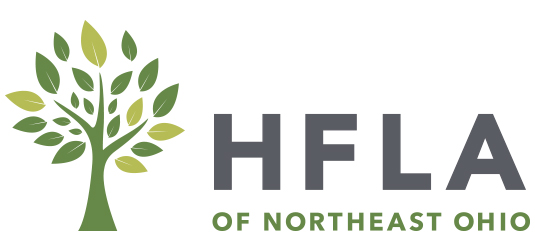One of HFLA of Northeast Ohio’s goals is to fight unfair payday loans in the state of Ohio. We are extremely passionate about this mission as we often work with clients who have fallen into the vicious cycle of payday loan debt.
On March 20, 2017, our Executive Director Michal Marcus appeared on NPR to discuss payday loan legislation reform and talk about HFLA’s work with payday loans.
The following is adapted from that conversation. To hear the discussion for yourself, click here.
What Are Payday Loans?
According to the Consumer Financial Protection Bureau, a payday loan is a relatively small amount of money lent at a high rate of interest on the agreement that it will be repaid when the borrower receives their next paycheck.
Consumers often take out payday loans for a one-time unexpected expense like a car repair or medical bill. Payday loans became legal in Ohio in 1995 when the Payday Loan Act was approved.
The Problem with Payday Loans
Payday loans in Ohio often reach an effective interest rate of nearly 600%. The highest rate HFLA has seen is 789%, but the average the organization sees ranges from 100% to 400% APR for one loan.
Lenders also often require borrowers to pay back the loans in an unrealistically short amount of time, like two weeks. In this situation, the borrower usually has two outcomes:
- They have the money to pay back the loan, but the high interest rates effectively wipe out their paycheck, leaving them with nothing to live on for the next two weeks.
- They do not have the money to pay back the loan, but they do have the money to pay back the two weeks’ interest fee and the lender simply rolls the loan over another two weeks with accumulating interest.
This leads to a revolving door scenario in which borrowers are taking out more payday loans to cover the debt they’re already in, sometimes having 3-5 loans at once.
In Michal Marcus’s experience, payday lenders also often make the payback process difficult, refusing to take certified checks or charging extra to send checks to their corporate offices
Payday Loan Legislation
In 2008, Ohio lawmakers realized the problems with payday loans and attempted to create legislation to fix these issues.
They capped payday loan interest rates at 28%, capped maximum loan amounts, and declared that the duration of loans could not be less than 31 days.
However, payday lenders found loopholes around the law by registering for licensing under the Ohio Mortgage Lending Act or as a credit service organization. Today there are 650 payday lender storefronts in Ohio and not one is registered under the 2008 law.
Ohio State Representative Kyle Koehler has proposed a new bill to clean up the 2008 payday loan legislation. The new bill will:
- Close the credit service licensing loophole.
- Limit loans to under $5,000.
- State that the lender cannot require the borrower to pay back more than 5% of their gross pay in a pay period (effectively stretching the payment period and preventing two-week payback deadlines).
- Restrict monthly fees to a maximum of $20 or 5% of the loan, whichever is more.
The payday lending reform bill, Ohio House Bill 123, has been assigned to the House Government Accountability & Oversight Committee, chaired by Rep. Louis “Bill’’ Blessing III, R-District 29, who represents part of Hamilton County.
For information on how to support this legislation, click here.
Join us in the fight against payday loans by showing your support for Ohio House Bill 123 (link) and by becoming an HFLA donor. Donate now and see what your dollars can do.

